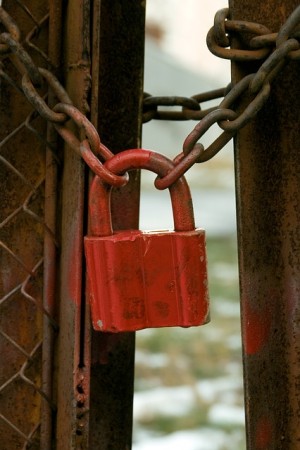chance of getting arrested after committing a crime ![]()
[noun]
[de pak-kans, de pak-kan-sen]
This is a great word – both because of its pronunciation and its meaning. "Pakkans" consists of two words: "pak" from "pakken" which means "to take". In "pakkans", "pakken" rather refers to its passive form: "gepakt worden" or "getting caught". "Kans" means "chance" (or "probability"). The "pakkans" is therefore the chance of getting caught.
Examples:
– "Minister van Veiligheid en Justitie Opstelten wil de pakkans van zware criminelen verhogen."
("Minister of Public Safety and Justice Opstelten wants to increase chances that heavy criminals are caught.")
– "Het aantal overvallen is de afgelopen jaren gestegen terwijl de pakkans aanzienlijk is afgenomen."
("The number of robberies increased in the past years whereas the number of arrests declined substantially.")
– <Poster:> "In het echt valt een overval minder op. Ziet u iets verdachts, bel 1-1-2."
(<Picture:> "In real life, a robbery is less obvious. If you see anything suspicious, dial 1-1-2.")
– "Een aantal juweliers probeerde de pakkans van overvallers te vergroten door camerabeelden uit te wisselen met elkaar."
("A couple of jewellers tried to increase the chance of robbers getting caught by exchanging camera footage with each other.")
Expressions:
– "In de kraag gevat worden": to get arrested.
Example:
– "De overvaller dacht dat hij was ontsnapt, maar door de camerabeelden kon de politie hem toch in de kraag vatten."
("The robber thought he'd escaped, but due to the camera footage the police could arrest him after all.")
– "Iemand van zijn bed lichten": to arrest someone in the middle of the night.
Example:
– "De overvaller dacht dat hij was ontsnapt, maar de politie lichtte hem dezelfde nacht nog van zijn bed."
("The robber thought he'd escaped, but the police arrested him the same night.")
Related words:
– Arresteren: to arrest [verb] [arresteerde, heb gearresteerd].
– Gearresteerd worden: to get arrested [verb] [werd gearresteerd, is gearresteerd].

 The literal meaning of “je bent aan het verkeerde adres” is “you are at the wrong address”, and its meaning is pretty close to the literal translation: you are not in the right place, or you have not come the right person, i.e.: you cannot count on any sympathy.
The literal meaning of “je bent aan het verkeerde adres” is “you are at the wrong address”, and its meaning is pretty close to the literal translation: you are not in the right place, or you have not come the right person, i.e.: you cannot count on any sympathy.
